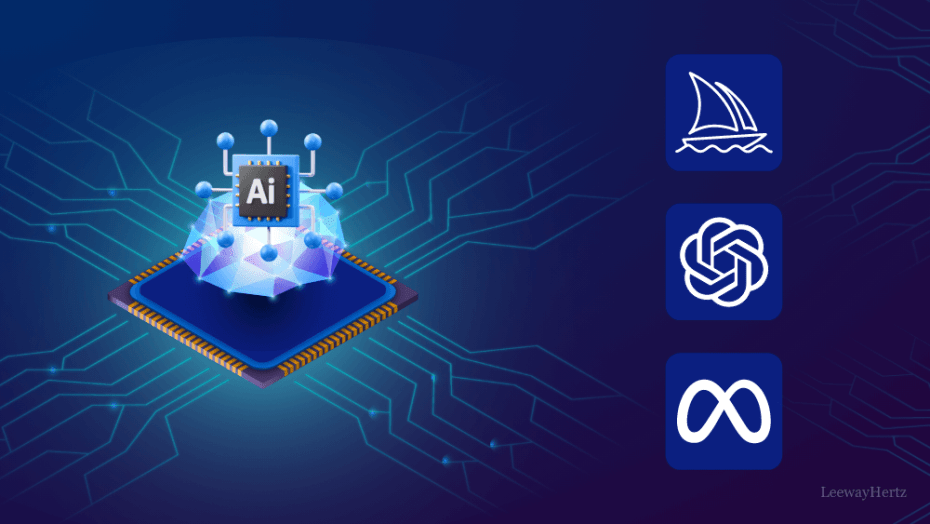Introduction
In recent years, Rise of Artificial Intelligence artificial intelligence (AI) has evolved rapidly, moving from a futuristic concept to an essential part of our daily lives. Voice assistants like Siri and Alexa, autonomous vehicles, and advanced healthcare applications are just a few examples of AI transforming the way we live and work. This technological shift has profound implications for industries, businesses, and society as a whole. In this post, we will explore the rise of artificial intelligence and its significant impact on various sectors.
What is Artificial Intelligence?
At its core, AI refers to machines programmed to simulate human intelligence, enabling them to think, learn, and problem-solve. Machine learning (ML) and deep learning (DL) are subsets of AI that allow computers to learn from data, recognize patterns, and improve over time without explicit programming.
Powered by algorithms and vast amounts of data, AI systems can make predictions, automate tasks, and engage in decision-making. Though AI has existed for decades, breakthroughs in computing power, big data, and neural networks have accelerated its development, making it a transformative technology.
AI in Healthcare: A Game-Changer for Patient Care
AI is revolutionizing healthcare, especially in areas like diagnostics, treatment plans, and patient care.
Early Disease Detection
AI can analyze medical images such as X-rays, MRIs, and CT scans with impressive accuracy. It helps detect early signs of diseases like cancer, heart conditions, and neurological disorders, often identifying abnormalities that human doctors might miss.
Personalized Medicine
By analyzing patient data, AI can create personalized treatment plans tailored to an individual’s genetic makeup, lifestyle, and medical history. This approach improves outcomes while minimizing adverse side effects.
Drug Discovery
AI is accelerating the drug discovery process by predicting how compounds behave in the body, identifying promising drug candidates, and even discovering new molecules for treatment.
AI in Business: Optimizing Operations and Driving Innovation
AI’s impact extends beyond healthcare; it is reshaping businesses across industries.
-
Customer Service: AI-powered chatbots are now common in customer service. These bots can handle a wide range of tasks, from answering questions to processing transactions, reducing the need for human agents and improving customer satisfaction.
-
Predictive Analytics: Businesses are leveraging AI to analyze customer data and predict trends. This allows companies to forecast consumer behavior, optimize inventory, and tailor marketing strategies to boost sales and engagement.
-
Automation: AI-powered tools are streamlining workflows, reducing manual tasks, and enhancing efficiency. From robotic process automation (RPA) in finance to supply chain management, AI is helping companies cut costs and boost productivity.
AI in Transportation: Autonomous Vehicles on the Horizon
AI is driving a major transformation in transportation. Autonomous vehicles, including self-driving cars, trucks, and drones, are approaching widespread adoption. These vehicles use AI to navigate, make real-time decisions, and ensure passenger safety.
-
Autonomous Cars: Companies like Tesla, Waymo, and Uber are developing self-driving cars capable of navigating roads, obeying traffic laws, and avoiding obstacles. AI processes data from sensors, cameras, and radar in real-time, enabling vehicles to make split-second decisions.
-
Supply Chain and Logistics: Autonomous trucks powered by AI are already being tested to transport goods over long distances without human drivers. These vehicles could dramatically reduce shipping costs and improve supply chain efficiency.
-
Drones: AI-driven drones are being used for tasks such as delivering packages, surveying land, and monitoring infrastructure. Drones can operate in areas that are difficult for humans to access, providing valuable insights and services.
Ethical Considerations and the Future of AI
AI presents tremendous potential but also raises important ethical challenges that need attention as the technology develops.
-
Job Displacement: The impact of AI on employment is a common concern. Automation could make certain jobs obsolete, leading to potential job displacement. However, others argue that AI will create new opportunities and enhance human productivity, enabling workers to focus on more complex tasks.
-
Bias and Fairness: AI systems depend on the data they are trained on. If that data contains biases, the AI system may perpetuate or amplify them. Ensuring fairness and transparency in AI is essential to prevent discriminatory practices.
-
Privacy and Security: As AI systems process vast amounts of data, safeguarding this data and ensuring it is used responsibly is crucial. Striking a balance between AI’s capabilities and individuals’ privacy is key to building trust in the technology.
Looking Ahead: The Future of AI
Rise of Artificial Intelligence
AI’s potential applications are virtually limitless, and we have only scratched the surface. As AI evolves, it will play an even more prominent role in fields such as education, entertainment, and cybersecurity.
In the coming years, AI could usher in an era of personalized experiences, smarter cities, and more efficient industries. However, it will be vital for governments, businesses, and individuals to work together to ensure AI is developed and deployed responsibly, ethically, and with consideration for its broader societal impact.
















